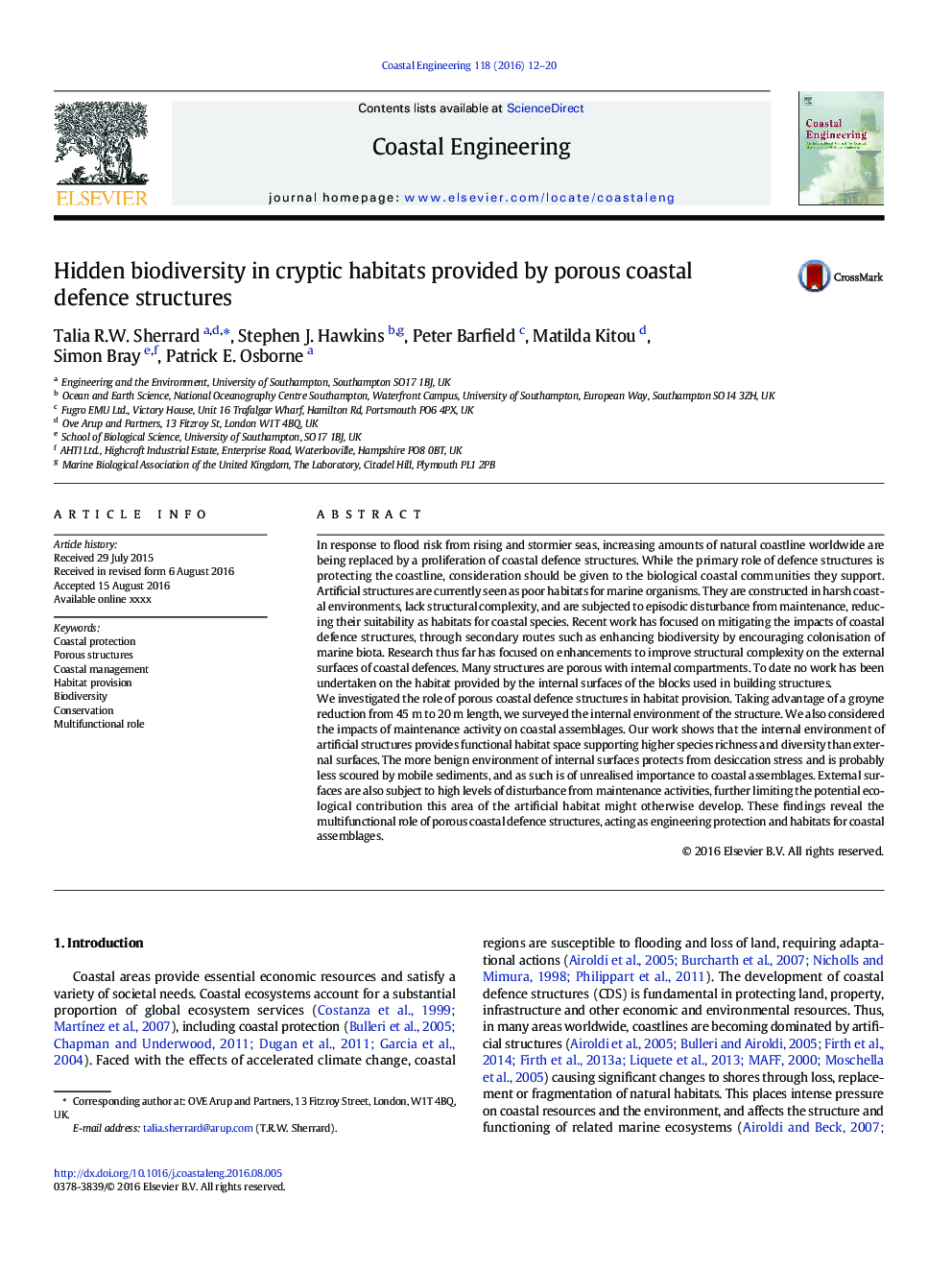| Article ID | Journal | Published Year | Pages | File Type |
|---|---|---|---|---|
| 5473429 | Coastal Engineering | 2016 | 9 Pages |
Abstract
We investigated the role of porous coastal defence structures in habitat provision. Taking advantage of a groyne reduction from 45Â m to 20Â m length, we surveyed the internal environment of the structure. We also considered the impacts of maintenance activity on coastal assemblages. Our work shows that the internal environment of artificial structures provides functional habitat space supporting higher species richness and diversity than external surfaces. The more benign environment of internal surfaces protects from desiccation stress and is probably less scoured by mobile sediments, and as such is of unrealised importance to coastal assemblages. External surfaces are also subject to high levels of disturbance from maintenance activities, further limiting the potential ecological contribution this area of the artificial habitat might otherwise develop. These findings reveal the multifunctional role of porous coastal defence structures, acting as engineering protection and habitats for coastal assemblages.
Related Topics
Physical Sciences and Engineering
Engineering
Ocean Engineering
Authors
Talia R.W. Sherrard, Stephen J. Hawkins, Peter Barfield, Matilda Kitou, Simon Bray, Patrick E. Osborne,
